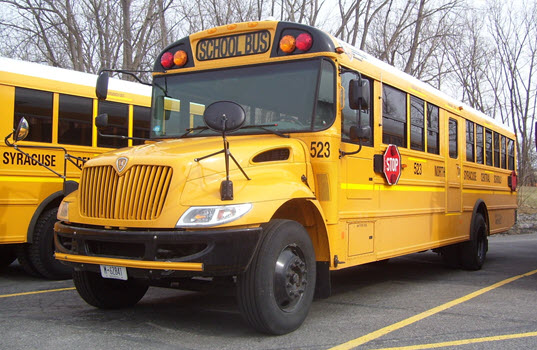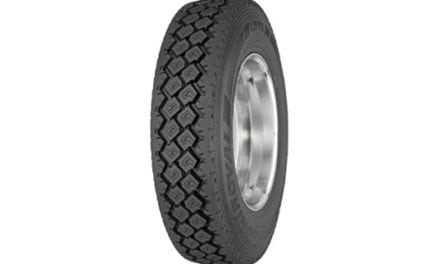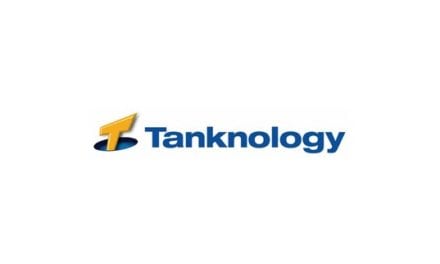By Ezra Finkin, Diesel Technology Forum
There is a compelling economic, air quality and common-sense case to be made for investing in new diesel technology for getting kids to and from school. New advanced technology diesel-powered school buses are cost-effective, proven, safe, reliable, durable and a near zero emissions option today for all school districts.
Today, 95 percent of the roughly 500,000 school buses operating in the U.S. are powered by diesel engines. It remains the technology of choice for most school districts. Some will ask, “Why is that, particularly when hearing more about new options available like electric and propane?”
The answer is that diesel provides the best all-around combination of safety, reliability, operating range, durability and low-cost ownership and operation, widely available fueling and repair networks, expanded utility beyond routine routes, and ability to use high quality renewable biofuels. And today’s generation of diesel adds an important new attribute: near zero emissions.
Thanks to diesel’s low cost relative to other propulsion options, more emissions can be reduced by replacing older buses with new advanced technology diesel-powered buses. Some analysts conclude that all-electric buses may come with a price tag three times that of a new diesel bus. School districts looking to replace older buses frequently operate within very tight budgets. One school district in California determined that going all-electric would cost almost $4 million more than replacing its aging fleet of 32 buses with new diesel options. Four million dollars is big money for small school districts.
Beyond costs, many rural and suburban districts operate in remote areas or those with temperature extreme conditions with established routes that may extend beyond the range capability of a battery. Other school districts may not have the financial wherewithal to invest in a network of expensive charging stations. The city of Aspen, Colorado, determined that the cost of purchasing and installing a single charging station came with a $160,000 price tag. That’s about the cost of another new diesel bus, which amplifies an important point: acquiring electric buses and their required infrastructure actually can have the unintended consequence of having more kids riding on older buses and generating higher fleet emissions overall due to cutting back on basic turnover of the existing fleet.
Another important consideration is purely economic. Is the high-priced investment in electric school buses that only operate for a few thousand miles a year, for just a few hours a day, for only 9 – 10 months a year a strong case for the use of limited education funding dollars?
For most fleets, choosing the new diesel option may actually reduce more emissions, because for the same amount of limited pupil transportation dollars, older and higher-emitting buses can be replaced at lower cost than buying a few electric buses. The State of Arizona determined that, for a fixed investment in new buses, three times as many emissions could be reduced by replacing more, older and higher-emitting buses with the diesel option than with all-electric!
All fuels and technologies have their pluses and minuses. Electric buses may have no tailpipe emissions, but ultimately emissions depend on where the electricity comes from. School districts have another low-carbon, greenhouse gas emissions-cutting option by running their diesel bus fleet on high-quality advanced renewable biofuels that do not require any additional investments in refueling infrastructure—and can cut carbon emissions by at least 50 percent overnight. In the case of advanced renewable diesel fuel, the greenhouse gas-eliminating power is over 80 percent. In California, the California Air Resources Board recently found that fueling diesel buses, trucks and other heavy-duty equipment with renewable diesel and biodiesel is the leading contributor to reducing greenhouse gas emissions from their transportation sector. Exponentially more tons of carbon emissions in California have been eliminated with the use of these fuels than by relying on all-electric cars and trucks.
Getting more kids to school safely, affordably and reliably within the means and budgets they have is best done by investing in the latest generation of proven and available advanced diesel technology.
 Ezra Finkin is the policy director for the Diesel Technology Forum. The Diesel Technology Forum is a non-profit organization dedicated to raising awareness about the importance of diesel engines, fuel and technology. Diesel Technology Forum members are global leaders in clean diesel technology and represent the three key elements of the modern clean-diesel system: advanced engines, vehicles and equipment; cleaner diesel fuel; and emissions-control systems.
Ezra Finkin is the policy director for the Diesel Technology Forum. The Diesel Technology Forum is a non-profit organization dedicated to raising awareness about the importance of diesel engines, fuel and technology. Diesel Technology Forum members are global leaders in clean diesel technology and represent the three key elements of the modern clean-diesel system: advanced engines, vehicles and equipment; cleaner diesel fuel; and emissions-control systems.










